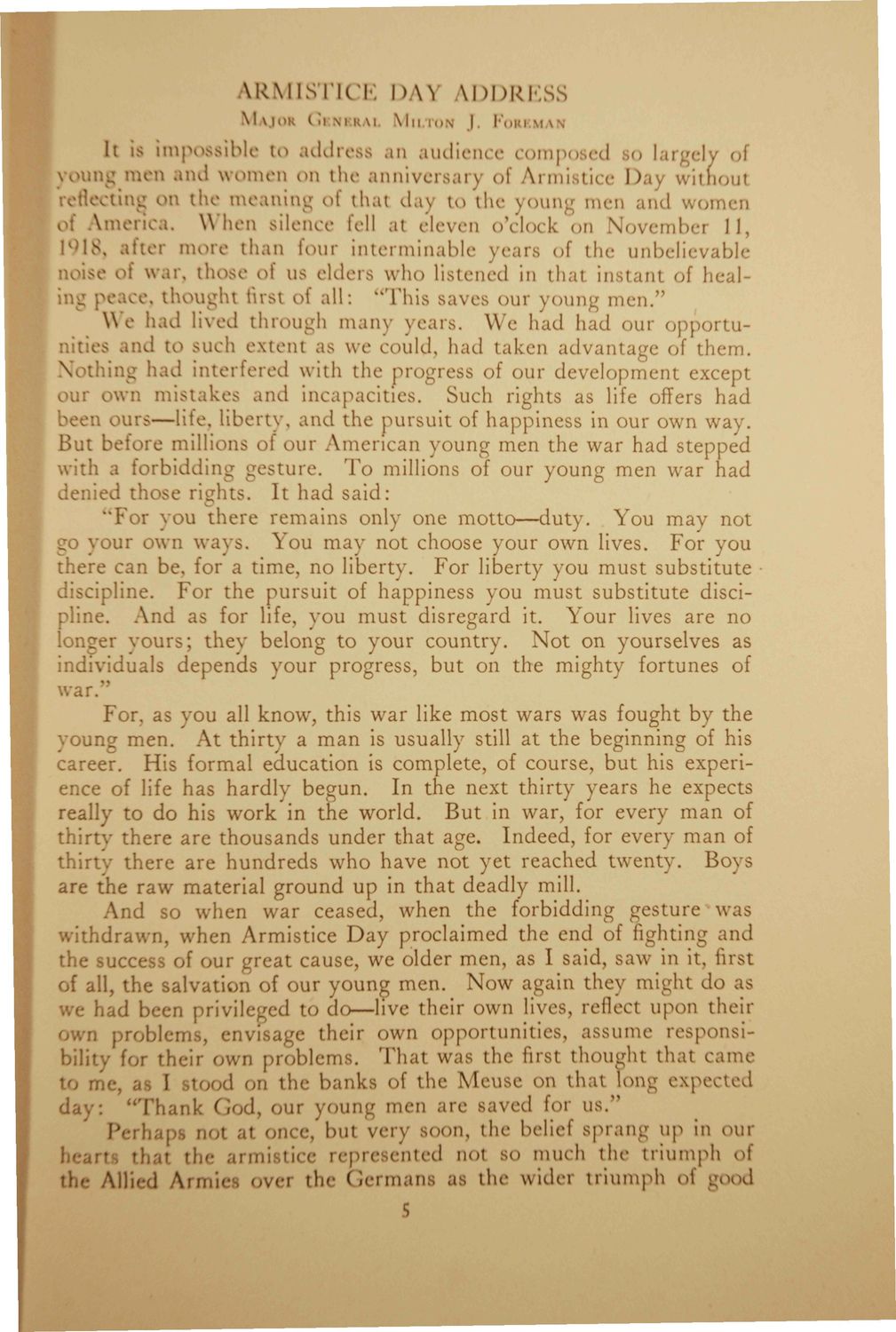| |
| |
Caption: Convocation - 1921 (Armistice Day)
This is a reduced-resolution page image for fast online browsing.

EXTRACTED TEXT FROM PAGE:
ARMISTkK l ) \ ^ ADDRESS \ ! \JOR c;t M K \i \ln roN |. FORI M *N It 13 impossible to address .in audieiu < omposed SO largely of youn icn and women on the a universal*) of Armistice Day without Icvtinfl on the meaning of thai day to the young men and women Vmerica. When silence fell at eleven o'clock on Novembei 11, 1918, after more than four interminable years of the unbelievable noise ^i w r. those of US elders who listened in that, i n f a n t of healing peace, thought first of all: "This saves our young men." We had lived through many years. We had had our opportutities and to such extent as We could, had taken advantage of them. Nothing had interfered with the progress of our development except our own mistakes and incapacities. Such rights as life offers had been ours—life, liberty, and the pursuit of happiness in our own way. But before millions of our American young men the war had stepped with a forbidding gesture. T o millions of our young men war had denied th< e rights. It had said: "For you there remains only one motto—duty. You may not o your own ways. You may not choose your own lives. For you here can be, for a time, no liberty. For liberty you must substitute discipline. For the pursuit of happiness you must substitute discipline. And as for life, YOU must disregard it. Your lives are no Ion _T yours; they belong to your country. Not on yourselves as individuals depends your progress, but on the mighty fortunes of war." For, as you all know, this war like most wars was fought by the oung men. At thirty a man is usually still at the beginning of his career. His formal education is complete, of course, but his experience of life has hardly begun. In the next thirty years he expects really to do his work in the world. But in war, for every man of thirty there are thousands under that age. Indeed, for every man of thirty there are hundreds who have not yet reached twenty. Boys are the raw material ground up in that deadly mill. And so when war ceased, when the forbidding gesture was withdrawn, when Armistice Day proclaimed the end of lighting and the success of our great cause, we older men, as I said, saw in it, first of all, the salvation of our young men. Now again they might do as e had been privil red tb do—live their own lives, reflect upon their ov i problems, envisage their own opportunities, assume responsibility for their own problems. That was the first thought that came o me, a I stood on the banks of the Meuse on that long expected day: "Thank God, our young men are saved for us." Perhaps not at on 'but very soon, the belief Sprang up in our heart that the armisti represented not so much the triumph of s the Alii- ! A n n i e over flic Germans as the Widei triumph of good
| |